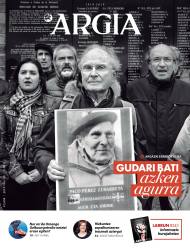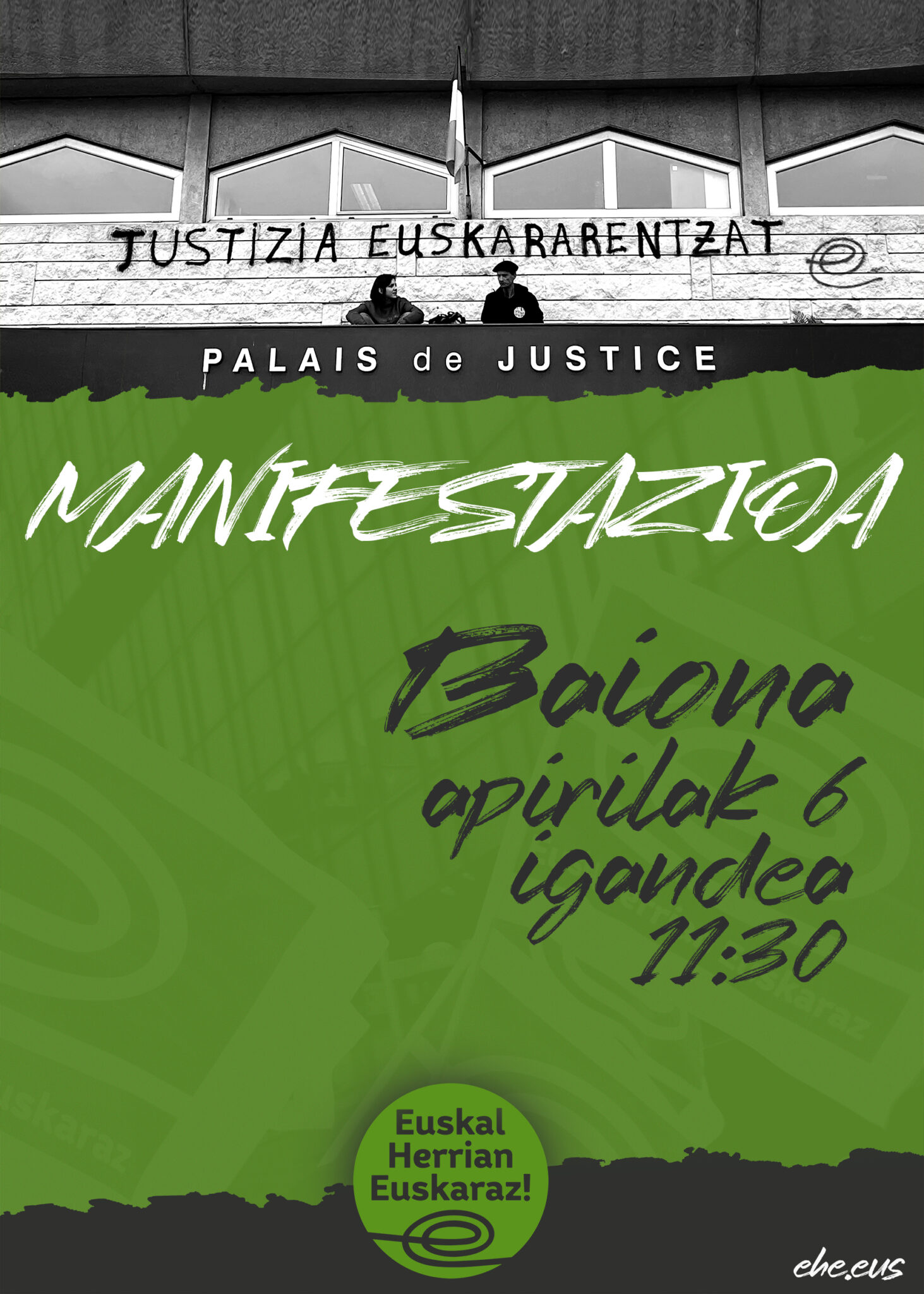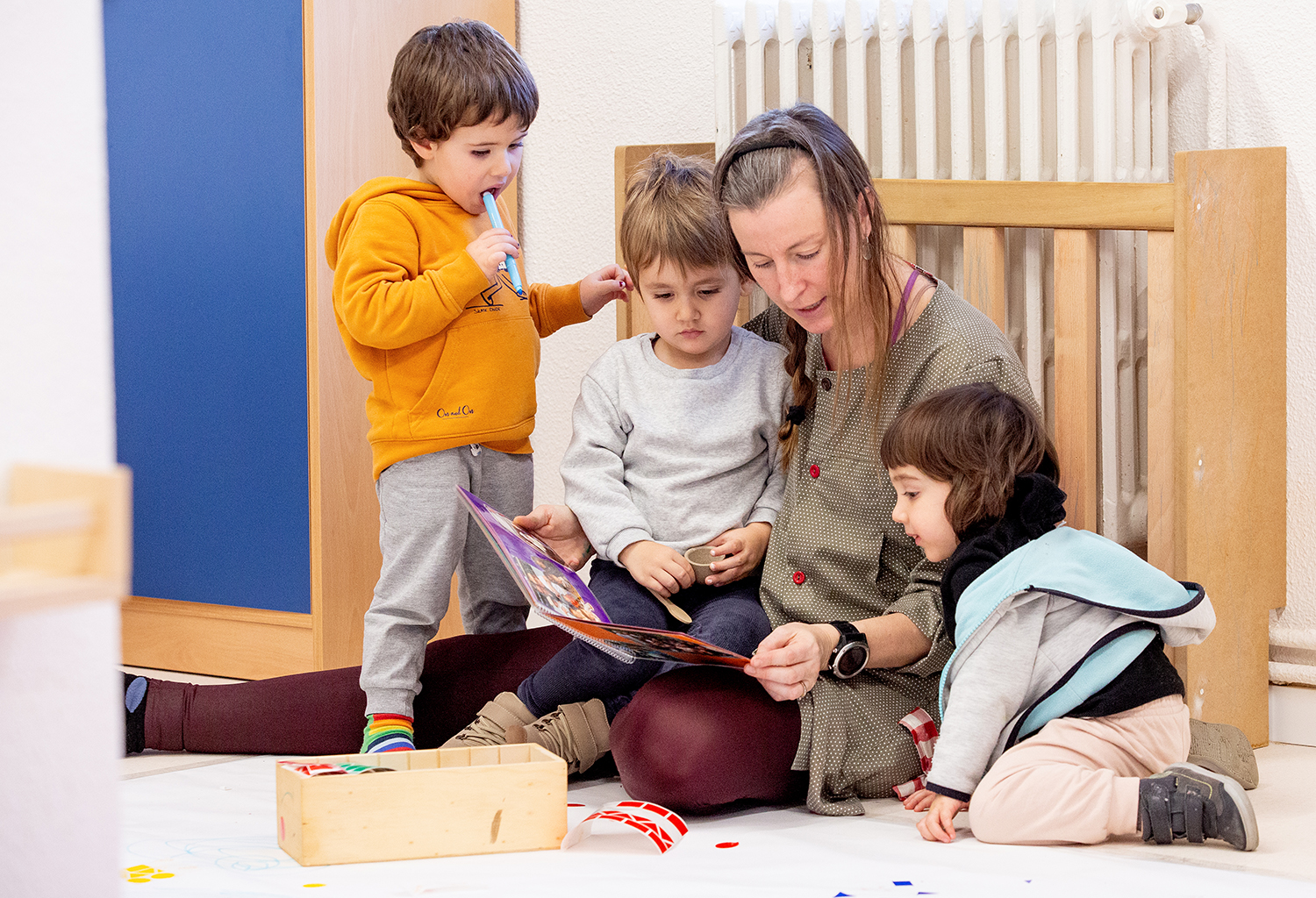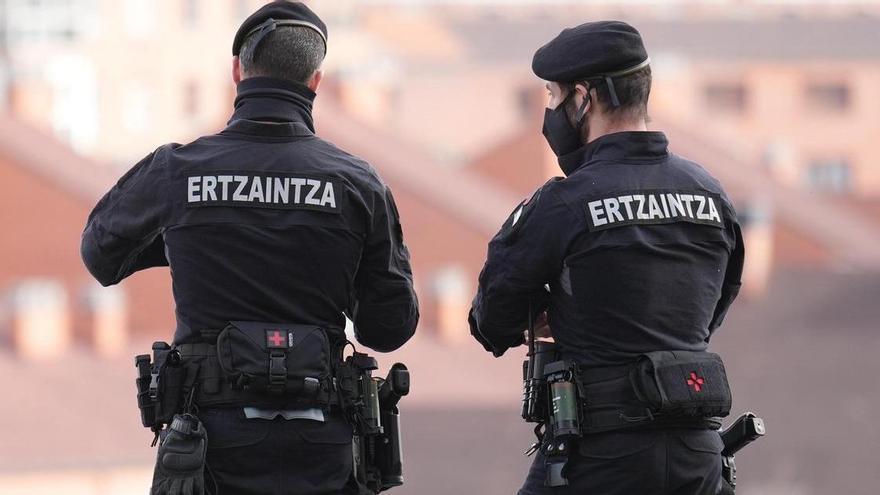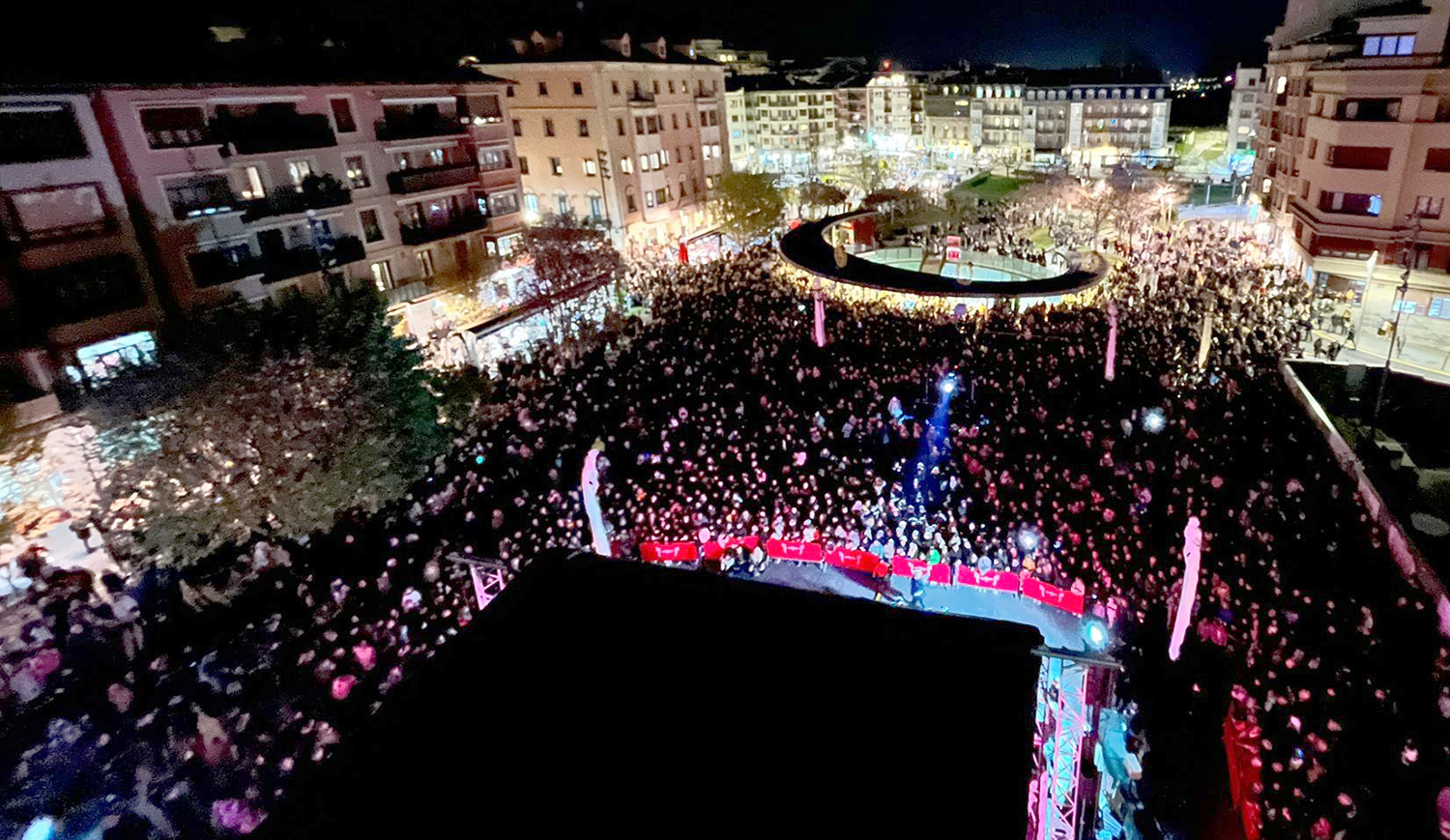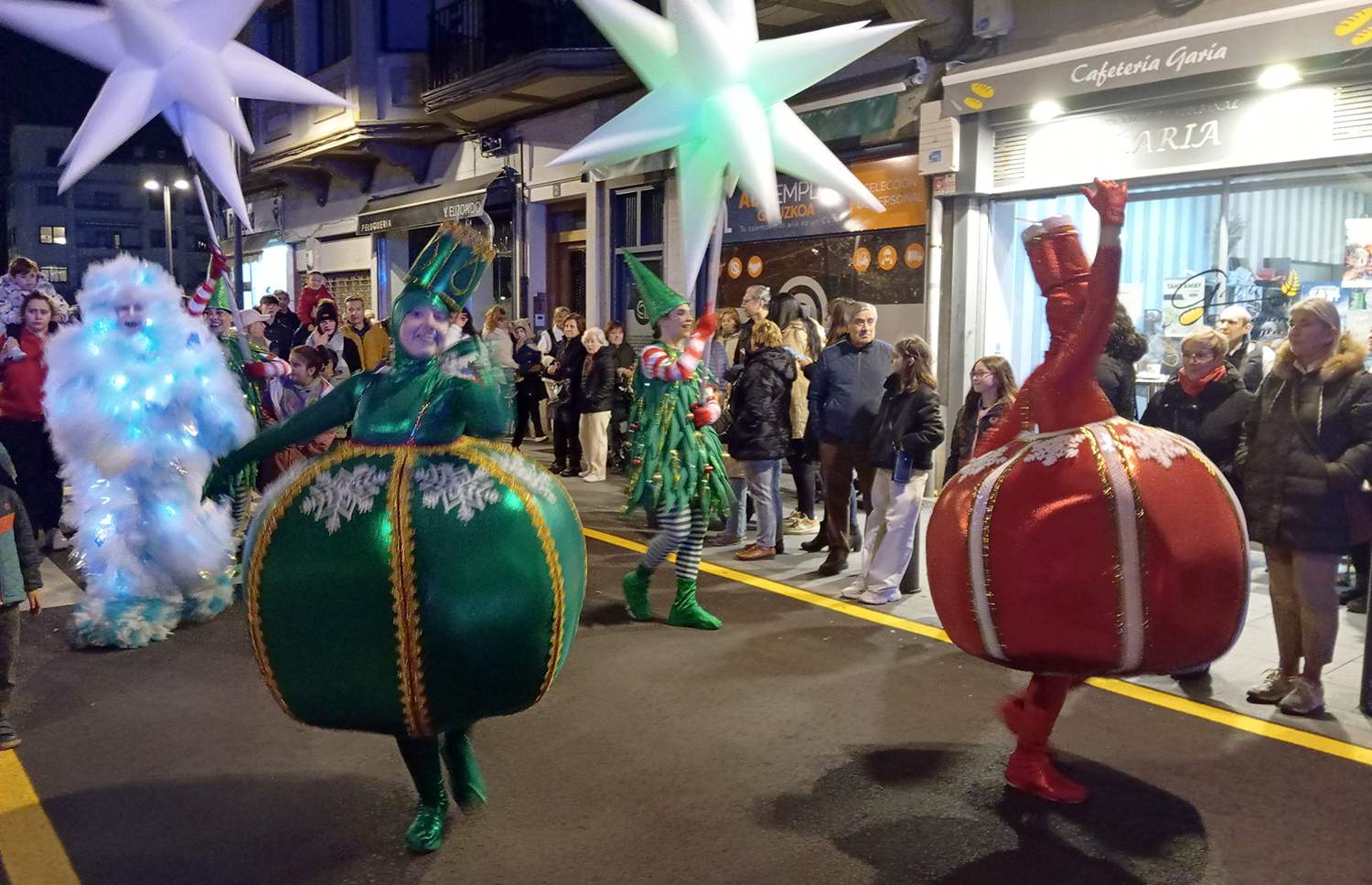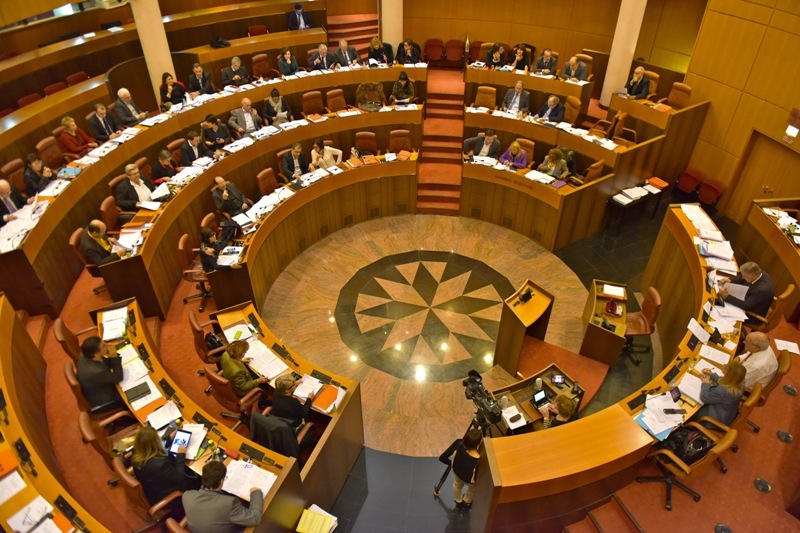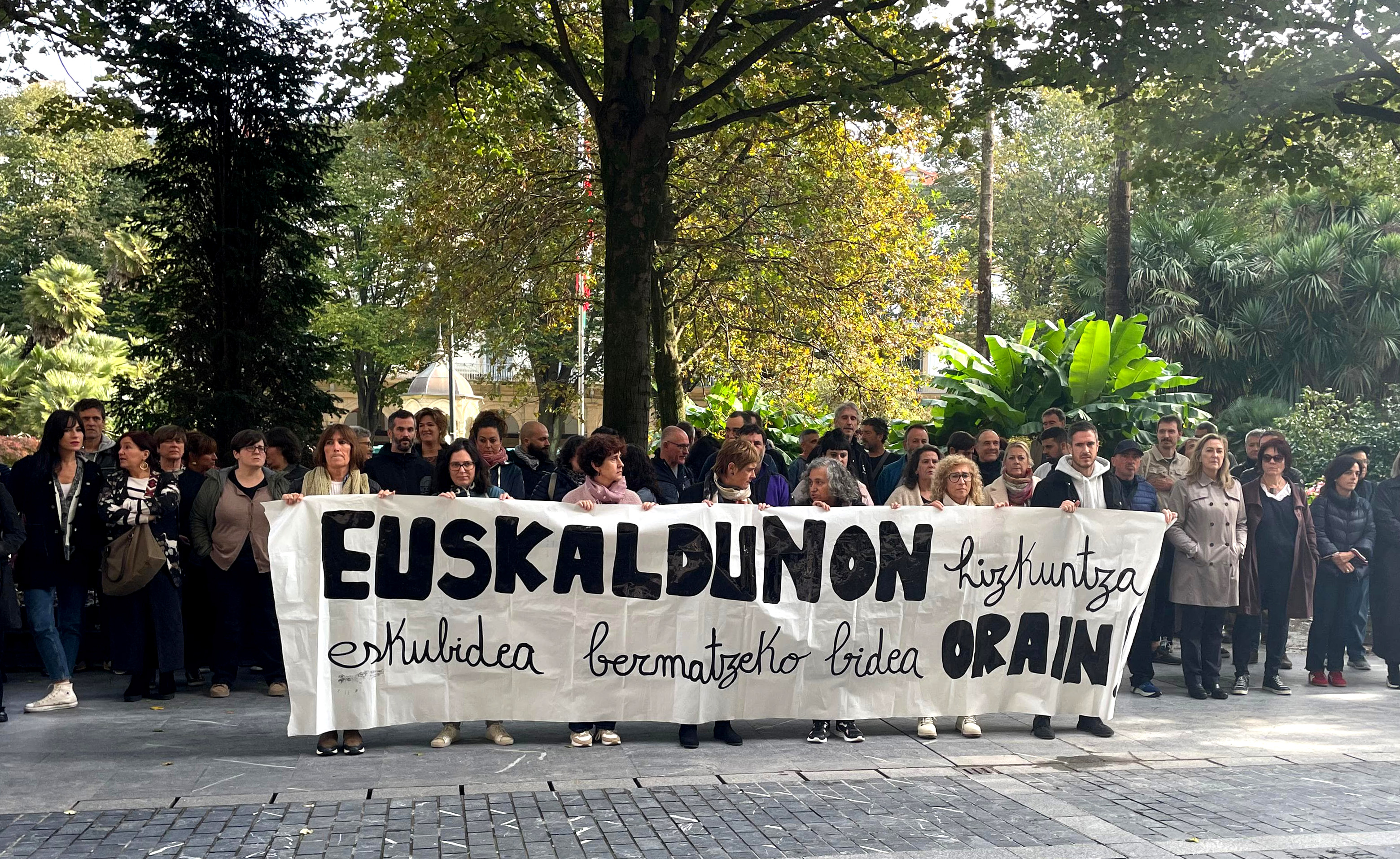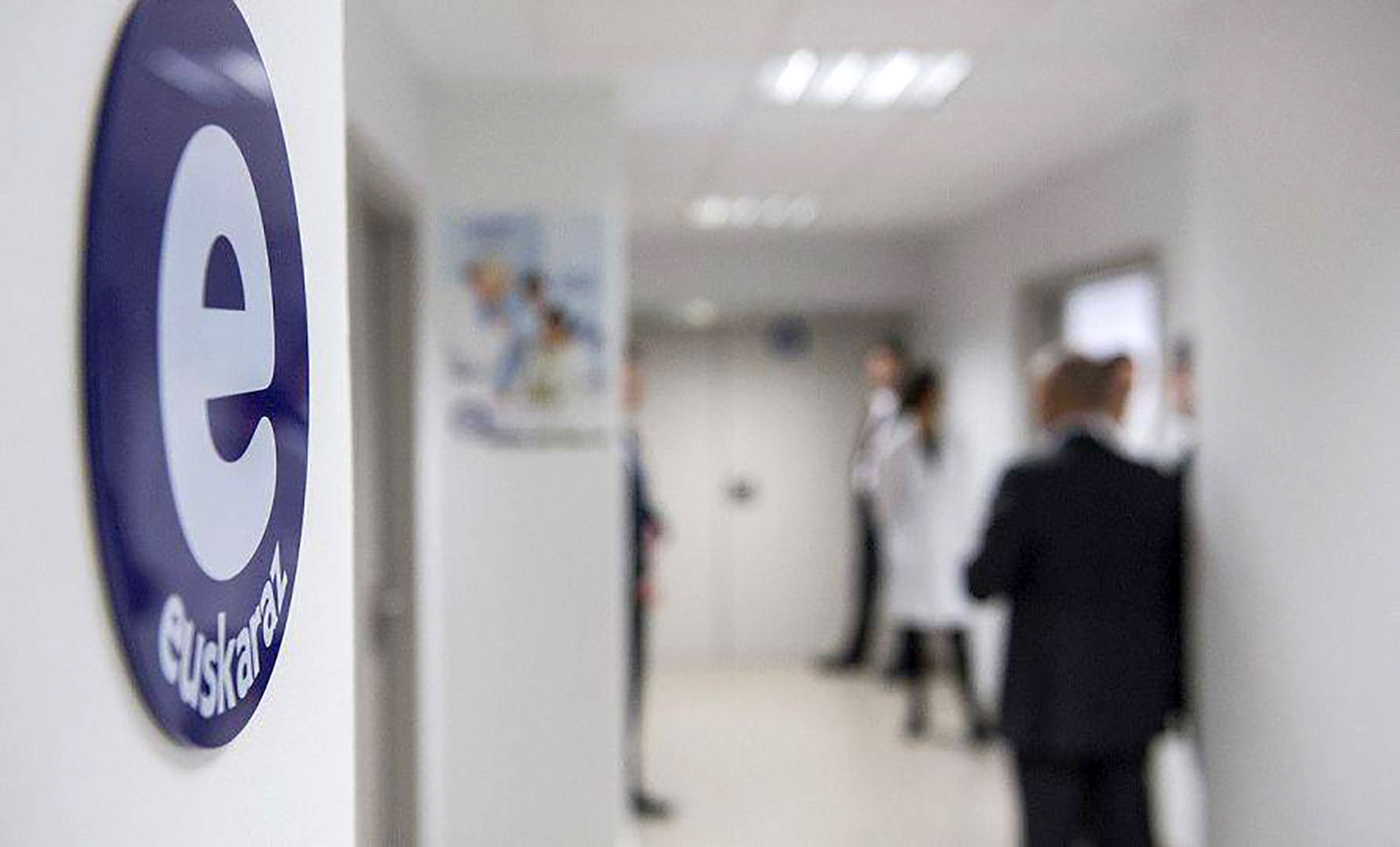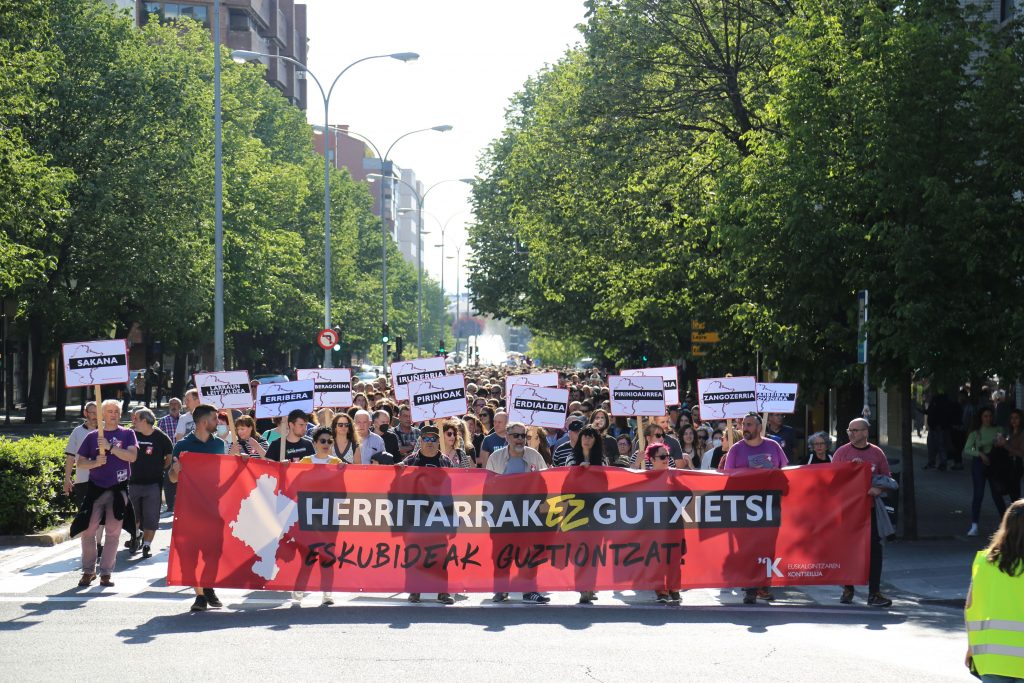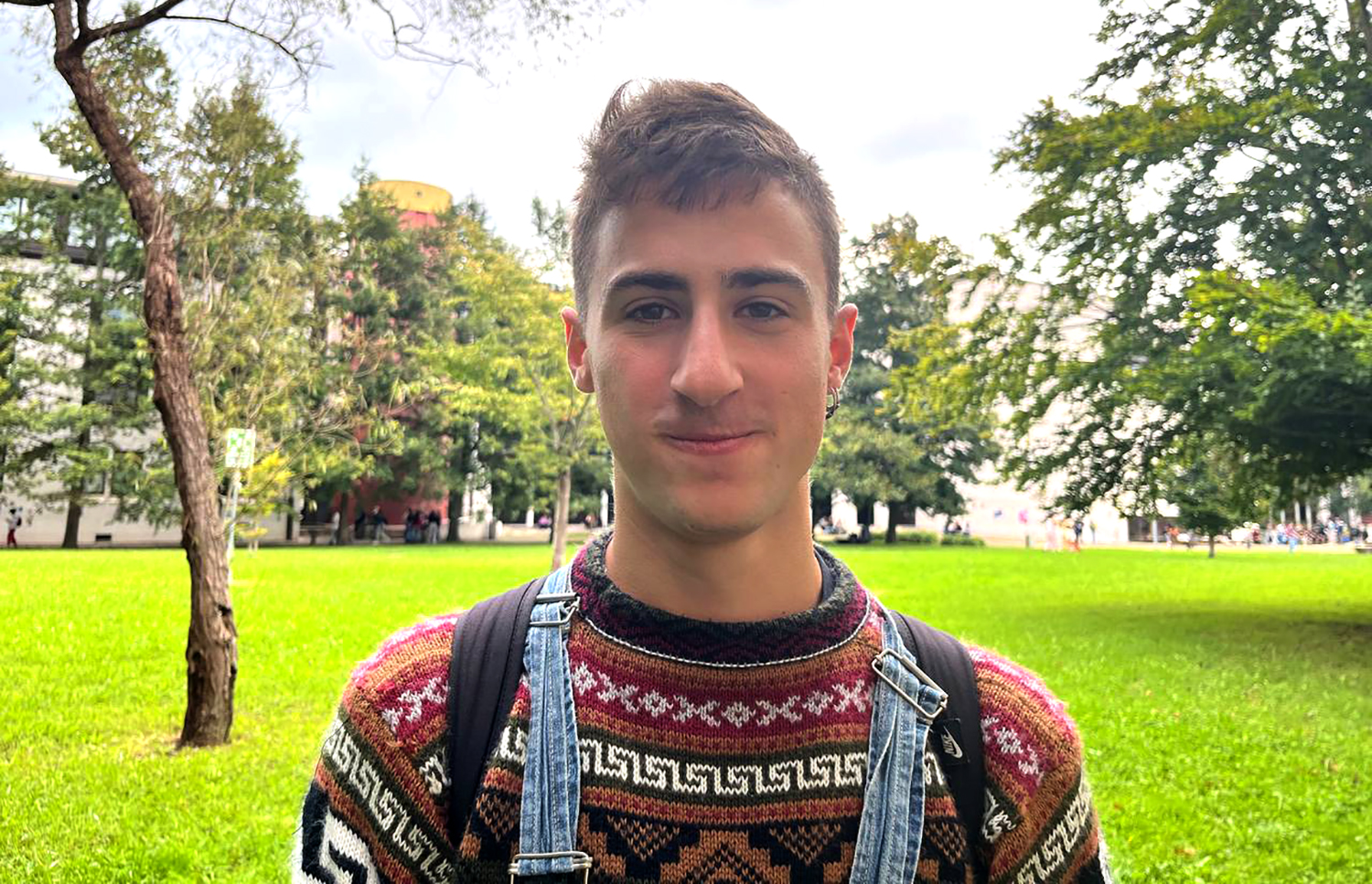History of a traumatized body
- The 44-year-old Sulatino has been going to the psychotherapist for six years with the intention of serving his sentence. The therapist and the patient have not yet managed to untie the knot. One day, the therapist asks him: “What happened to you when you were 5 years old?” The patient has told her that at that age she was forbidden to speak in Basque at school and at home. Ainize Madariaga will interview a crushed speaker and his therapist, kidnapping the Community. Trauma of the speaker: diagnosis and palliative in the book.
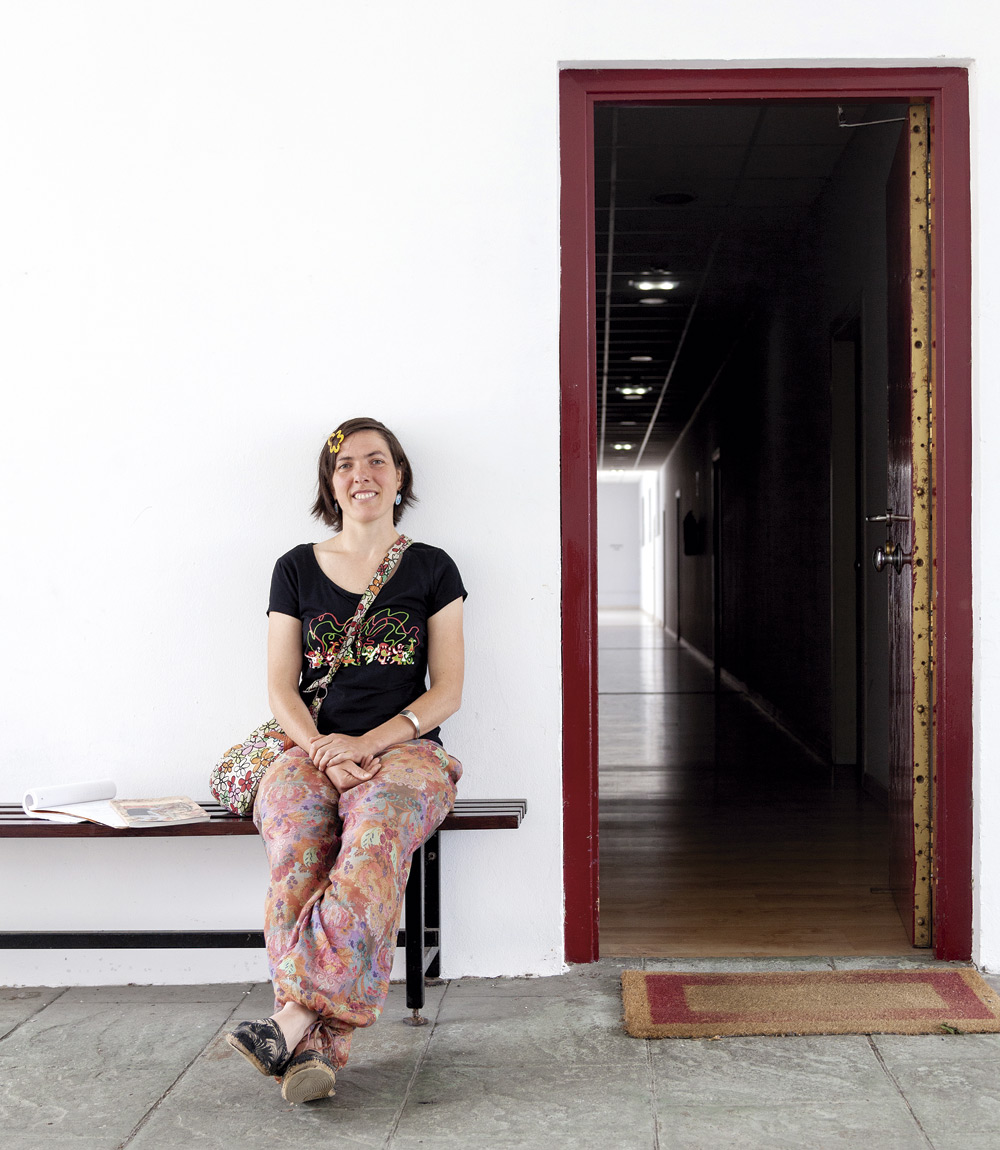
Six years of consultation and you can't take the picture of what was happening to the patient. The patients who spoke linguistic issues in the first year of therapy – Madariaga called the anonymous witness in the book Jakilea – and the psychotherapists, but somely. After six years with Jakila, the therapist discovered that Jakilea had the same psychological and emotional consequences as victims of rape or ill-treatment. He then asked him directly whether he had been raped or physically abused as a child. The wise man says no. At the next appointment, Miguel Strogoff didn't know what to tell the therapist. And he said, “What happened to you when you were 5 years old?”
To this question, what did the Connoisseur answer? Until the age of 5 he lived in Euskera. He then started in school, completely in French. The teacher told the parents that they had to leave the Basque country out and that the child would do it in French, since the Basque did not serve at all. So did my father and my mother. The exception was Grandma, who constantly told her to speak in Basque at home. The rupture was brutal: with her parents and at school, she couldn't use the only language she knew, they forced her to use the language she didn't know. The connoisseur himself will tell the psychotherapist who spent almost two silent years without being able to draw words from his mouth, either in Basque or in French. Psychotherapists call it violence to ban language. Madariaga, the author of the book, will explain by metaphor how the linguistic rupture and removal of personality has occurred. The child is immersed in an emotional and linguistic bath in the mother's womb. This attachment continues to exist after birth, with the mother, or with the closest ones. The stage of 3 to 6 years is very important, as children begin to structure their speech. Well, if the child's tongue is removed during this period of life, severe trauma can occur. Following the metaphor of the psychotherapist, the child has been removed from the bathroom with language and emotion and brutally subjected to another bath that does not have the same temperature.
The psychotherapist Marie-José Sibille knows what she is talking about. Accustomed to working with adopted children from abroad, he knows the traumas by his language. These are not similar examples, since they are not being forbidden to speak the language, but the truth is that the new parents do not know the language of the child and the child does not listen to the original language around them. This experience has helped him untie Jakilea's knot. How many and how many cases like the one you know there are in the Basque community? And how many of them haven't been treated?
Body suffering
Madariaga recently in ARGIA (2,647 ppm, June 9, 2019) Dabid Anautek (broken chains of the Basque Country). The author of the book Memory of linguistic oppression) recalled the following: “Anaute mentions that seeing the consequences of linguistic prohibition or rupture is not like seeing a puddle of blood in a war. The symptoms are not spectacular and we find it difficult to relate what has happened to the symptoms.” As for symptoms or physical effects, for example, the tonsils were removed to the Jacobea through the intervention. He had problems with his voice and breathing. It's a long list of emotional consequences. Jakilea mentions shame very often, she was ashamed to be Basque. I had lost my self-esteem. I was furious. I was afraid to speak in Basque as in French. I would have a remark or a punishment if I spoke badly in one language and in the other. And he would be guilty of having earned some mediocre notes in school or of not having learned one language or another, for not being able to satisfy the desires of those he loved. He would live it as an isolated fact, never imagining that the cause of his suffering is the social.
How to overcome trauma?
Madariaga knew that Jakilea was on therapy, commissioned by Jakilea himself. At one point he came to tell him that, thanks to the therapist's question, he had told this and that, which was an explosion. By the age of 5, he began to tell what happened and that beginning put him on the road to healing or well-being. Because that's what the therapist is going to say, you have to name the disease, the patient needs to know what's happened to him. The connoisseur will realize that it has been an attack, which has been provoked by linguistic oppression, which lives in an abnormal language. It's going to start making sense of its story, it's going to start taking away the feeling of guilt, slowly overcoming shame. Jacobea names trauma and also the therapist: colonialism.
In an interview given to Madariaga, Jakilea himself tells us that he had a beaten personality: “I’m X and in a moment you’ve become Y. I thought about what it was, because a moment after losing my personality, I gave up, to have a beloved scare. And now again, Xra, my childhood, fleeing again to join her.” Have you not known for many years what she was, X? And what? Now it is clear that he has the need to build his identity, to recover what it was in his childhood. After naming the Trauma, he began to recover the Basque country and approached what he called X. The connoisseur does not use the verb ‘nahi’, but the verb ‘behar’. It needs to recap. Madariaga tells us that she feels the loss as the amputation of a member and that she has decided to recover the mutilation, to sew it back to her organ. In addition to recovering the Basque Country, he is transmitting it to his sons and daughters. He has also begun to speak in Basque with his parents. He has approached Basque culture because, as he says, he feels the need to feel part of a society. He has also stated that he is saving himself, so as not to believe that attempts are being made to save the Basque country. He is sure that if he had not found the cause of the difficulties he has had in his life, if after five years he would have died, a victim of illness, a failure in his work, or something like that.
Can an oppressed speaker live without trauma?
Speaking of overcoming trauma, how can it be achieved if the oppressed speakers live daily the linguistic traumas that have difficulty doing so in their own language? The connoisseur could not live in French, but on the way back to the linguistic community of his childhood he is choosing to live in a minority language. Madariaga will tell us that he is gradually making his way, that is, his goal is not to save the Basque, but to save himself. At home he almost always speaks Basque and on the street he has the habit of speaking the first word in Basque. However, it still does not have the ability to dress up the cloak of a super hero. He will speak in Basque with the citizen found on Maulen Street, but if he replies in French he will immediately move to that language.
The connoisseur has suffered in his solitude, without the possibility of giving a political dimension to what has happened to him. For Madariaga it has been a gift to have the opportunity to tell the story of Jakiña. Many people have experienced (and live) hard trauma, but Jakilea has had the opportunity to work with the therapist, and Madariaga says: “The Jakile lived him in his corner, he believed he had happened to him alone. That suffering has to be shared and socialized, because all those pains are normal. All the members of the Basque community, unfortunately, have lived and lived through all those emotions to which the Sage refers, sooner or later, with more or less intensity. It is the current situation, the current analysis. We are living the glotocide here and now.”

Ainize Madariaga asking the Sulatino who has experienced the linguistic trauma about the feeling of guilt
What did you feel guilty about?
In childhood... When you see things wrong, they don't work well...
Without an answer that they could love in front of loved ones?
Yes, that is; if you do, the answer will never come. And I thought it was my fault the things that happened: I wasn't well in Basque, if I wasn't well in school ... Everything was missing! Everything! All my crime! Everybody for that, givers, parents for that, institutions ... Everybody. And I take that place, that way of doing, I always ogendant, I always do evil, the stratégie of l’échec. And I had taken that game over me and it had to be repeated!
The
psychotherapist Marie-José Sibille, on the severity of the linguistic rupture
“As we have seen in other peoples or regions: it is something beyond the person, beyond the individual. There's a really collective element. And it's very irritating how it's treated. Well -- it's still irritating today how you deal with the problem, or rather how you don't get there, how you hide. I, which does not affect me in any way (in short, beyond the empathy and confused memory of my grandmother), feel completely indignant at what happens. How this is treated at a political level, really. The wise man speaks of colonialism and is quite right, such violence is seen! And I'm sure there are many people who have experienced the same problem."
Ainize Madariaga, on how to relieve pain
“To dispel the concern of the speakers of the Basque community, we must begin by naming the disease, becoming aware of the existence of the evil. In order to carry out this first step, the support implied by resilience is necessary, since recognition is fundamental to find a cure. Let us remember that in the sixth year of Psychotherapy the Connoisseur has named the disease he suffers. This shows the vagueness in which it is found and the wart that has its roots as if it were a calicha. Thus, Jakilea shows us how he sees himself: the two arms up and the smile on his face. Thus, we cannot deny that, although oppression has not ceased, the designation of evil, first, giving meaning to that concern, then, and, with the help of creation, the apprehension of the exits to suffering, can relieve the individual from the everyday, and have really relieved the Knower”.
“The drowned community. Trauma of the speaker: diagnosis and palliative” (Ainize Madariaga Muthular, UEU).
The Council of Euskalgintza is warning of the linguistic emergency we have been experiencing in recent weeks. Several years have passed since the beginning of describing the situation of the process of revitalization of the Basque country at the crossing, at the roundabout, at... [+]
Korsikako legebiltzarkideek ezin dute Korsikako Asanblean korsikeraz hitz egin, Bastiako Auzitegiaren 2023ko epai baten arabera. Ebazpen horri helegitea jarri zion Asanbleak, baina debekua berretsi du orain auzitegi berak. Epaiak tokiko beste hizkuntzei eragiten diela ohartarazi... [+]









